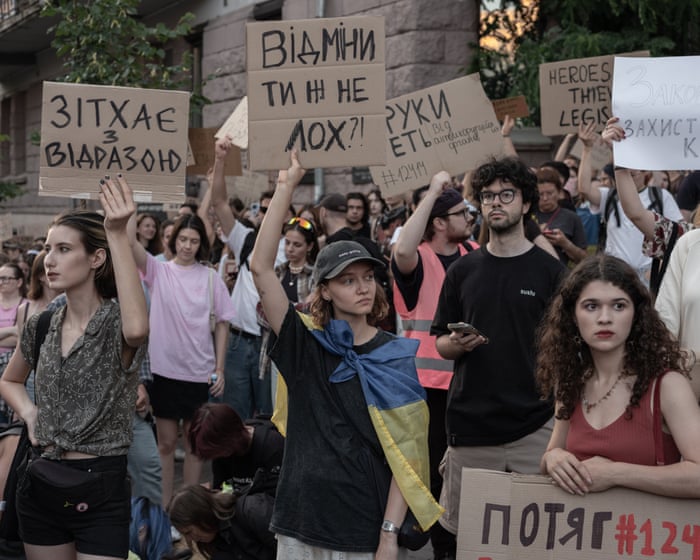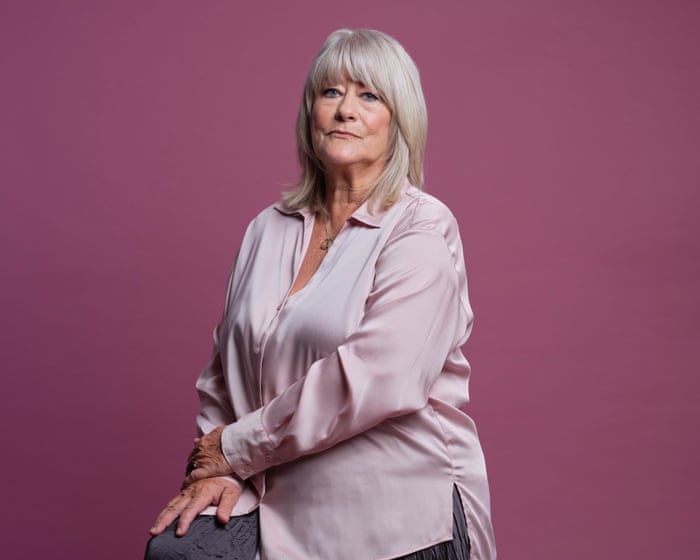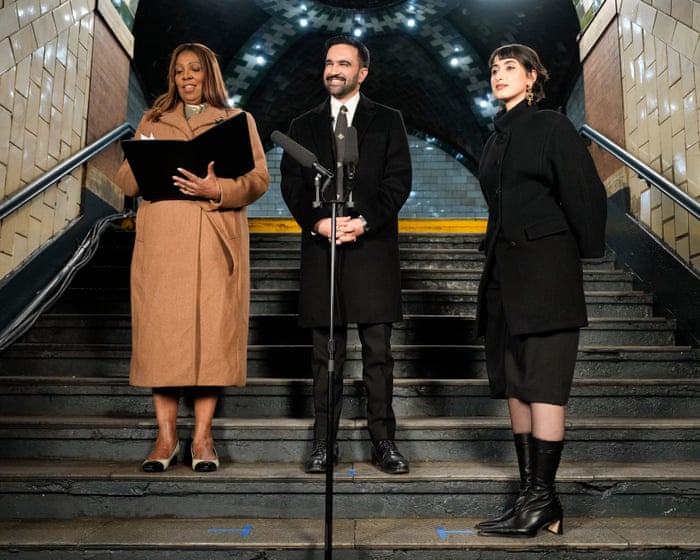Every ten years, Ukraine experiences a wave of street protests that reshape the country’s political landscape—from the Orange Revolution in 2004 to the Maidan uprising in 2014. Now, over the past ten days, the first major protests since Russia’s full-scale invasion have emerged.
Surprisingly large and energetic demonstrations forced President Volodymyr Zelenskyy to quickly reverse his decision to weaken two key anti-corruption agencies. On Thursday, lawmakers overturned the controversial changes they had approved just a week earlier. Outside parliament, crowds erupted in cheers as the vote results were announced.
Though smaller in scale and ambition than past revolutionary movements, these protests were no less striking—especially given they took place during an all-out war. The celebratory gathering happened just hours after a devastating Russian airstrike on Kyiv killed at least 31 people, including five children. Many protesters arrived at parliament bleary-eyed but determined, carrying banners and high spirits.
The wartime backdrop both fueled and constrained the protests. Many felt that while soldiers risk their lives on the frontlines, the government must uphold higher standards. Yet there was no revolutionary fervor like in 2014—just a sober recognition that political chaos would only benefit Russia.
“Some chanted for impeachment, but most shut them down, saying, ‘No, we don’t question the president’s legitimacy—he just made a mistake,’” said Inna Sovsun, an opposition MP who joined the protests.
Dmytro Koziatynskyi, whose social media post sparked the movement, dismissed comparisons to Maidan. “Even if they ignored us, this would never escalate beyond peaceful protest,” he said before the vote.
Koziatynskyi, a former combat medic who returned to Ukraine after the invasion, was outraged when parliament rushed through a law undermining anti-corruption agencies. “People aren’t fighting for a government that undoes all our progress since 2014,” he said.
His call for protests drew an unexpected response—instead of the 100 friends he expected, thousands gathered outside Kyiv’s Ivan Franko Theatre. The crowd was young, creative, and defiant, with signs blending humor and sharp criticism. One protester leading the national anthem held a sign that simply read: “Cringe.”
Suddenly, the fate of two relatively obscure institutions—the National Anti-Corruption Bureau (NABU) and the Specialized Anti-Corruption Prosecutor’s Office (SAPO)—had become the rallying cry of a new generation.A typical day for Ukrainian teenagers.
Nabu and Sapo were created after the Maidan revolution as part of Ukraine’s fight against long-standing corruption, with partial funding from the U.S. Some Western observers acknowledge issues with these agencies—too many cases opened but not enough resolved, for example. While streamlining them might make sense in theory, Zelenskyy’s actions seemed more like an attempt to bring independent investigators under political control.
With the Trump administration no longer prioritizing anti-corruption efforts and Europe distracted by summer holidays, Zelenskyy’s team likely thought they could push the bill through quickly without much scrutiny.
That might have worked—if not for the protests. Images of thousands of young people demanding the law’s repeal forced European leaders to respond, with several privately urging Zelenskyy to find a way out of the crisis he had created.
“This was a major breach of trust. It’s damaging both for Ukraine’s EU aspirations and for its allies trying to justify continued support,” said a diplomatic source in Kyiv.
Zelenskyy acted swiftly, though it was awkward for his Servant of the People party MPs, who had to reverse their previous vote.
Now, opinions on the episode are divided. Some see a leader misusing wartime powers to weaken independent institutions, blind to the backlash. Others highlight how Ukrainian democracy remains resilient, with leaders still responsive to public pressure.
Koziatynskyi, whose post sparked the protests, leans toward the latter view: “The protests proved that Ukrainian democracy is strong even in wartime, and our society is mature enough to engage with the government—which, in turn, can listen.”
Zelenskyy’s presidential term should have ended last year, but with war ongoing, even his critics agree elections are impossible. Amid continued Russian attacks and hopes for a tougher U.S. stance under Trump, that consensus holds. While no one wants instability, the protests may shift the political mood.
“Legally, things return to normal—politically, it’s more uncertain,” said Sovsun. “We’ve broken the unspoken rule against protesting under martial law. It’s hard to predict the consequences.”



